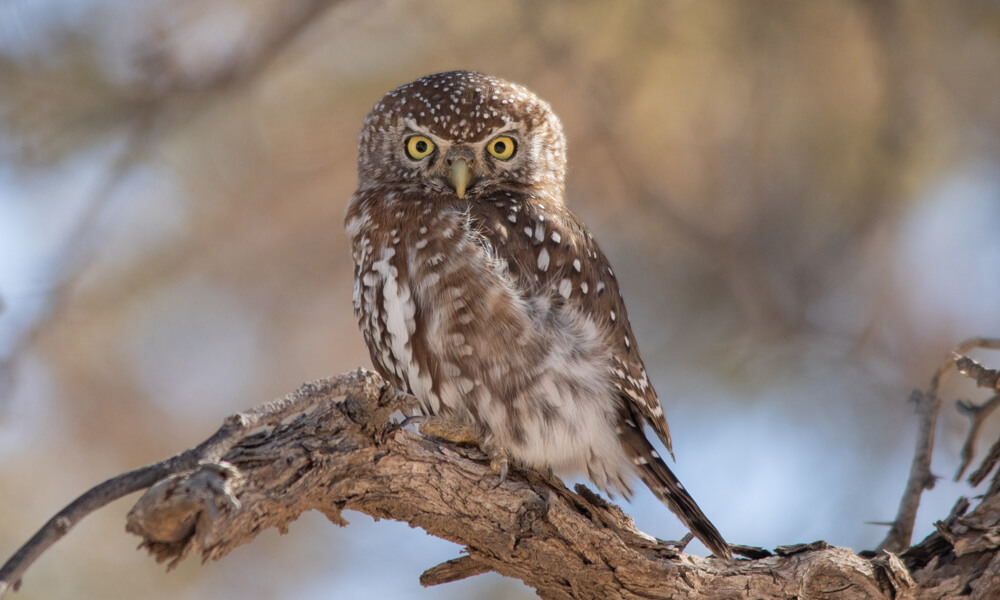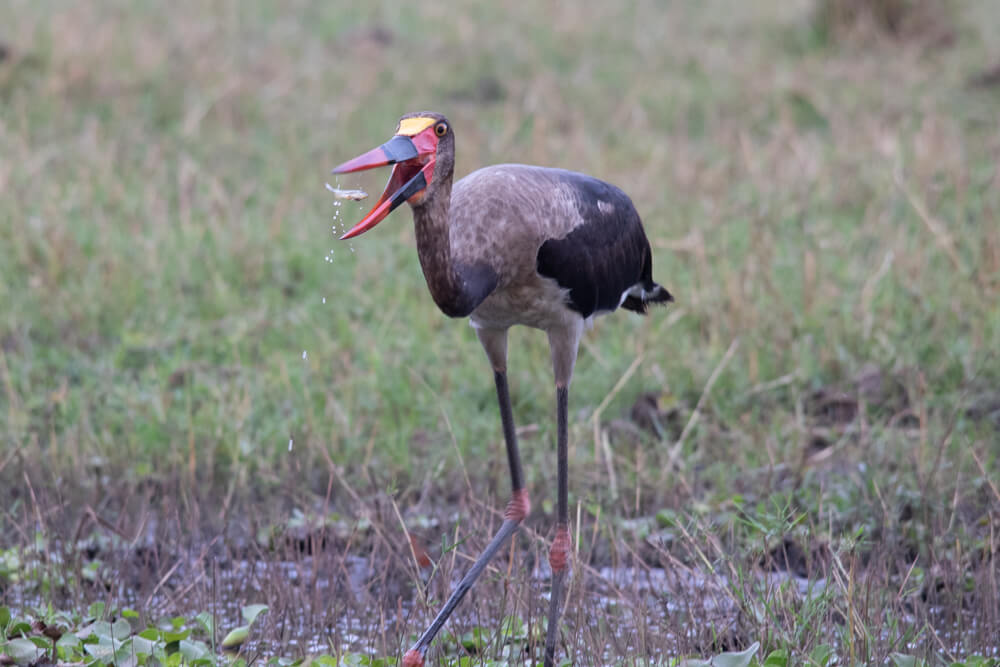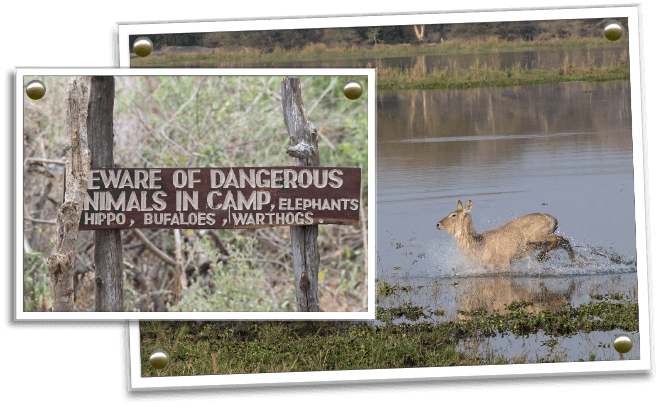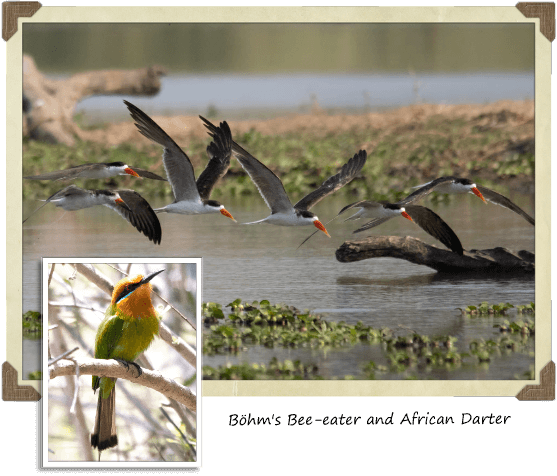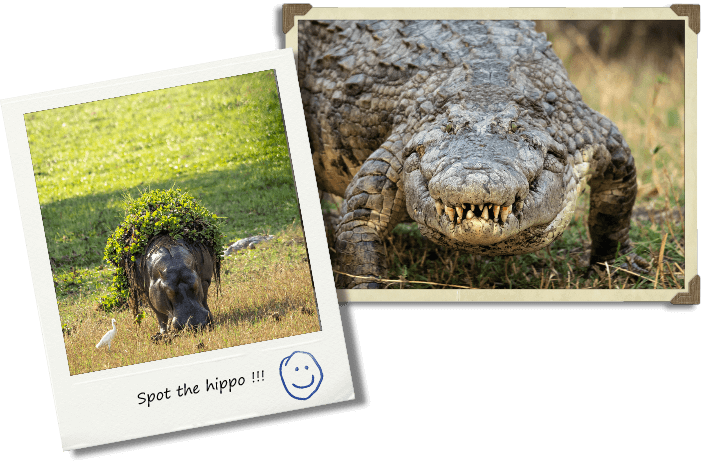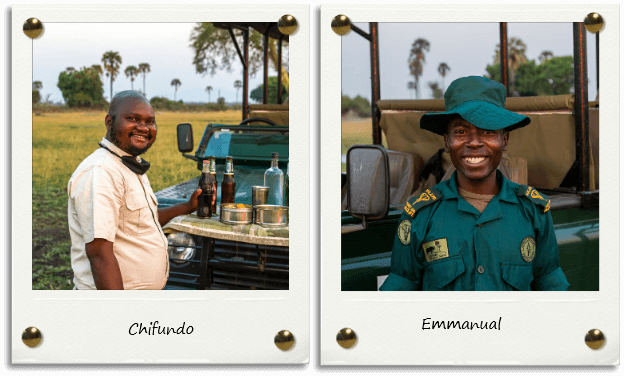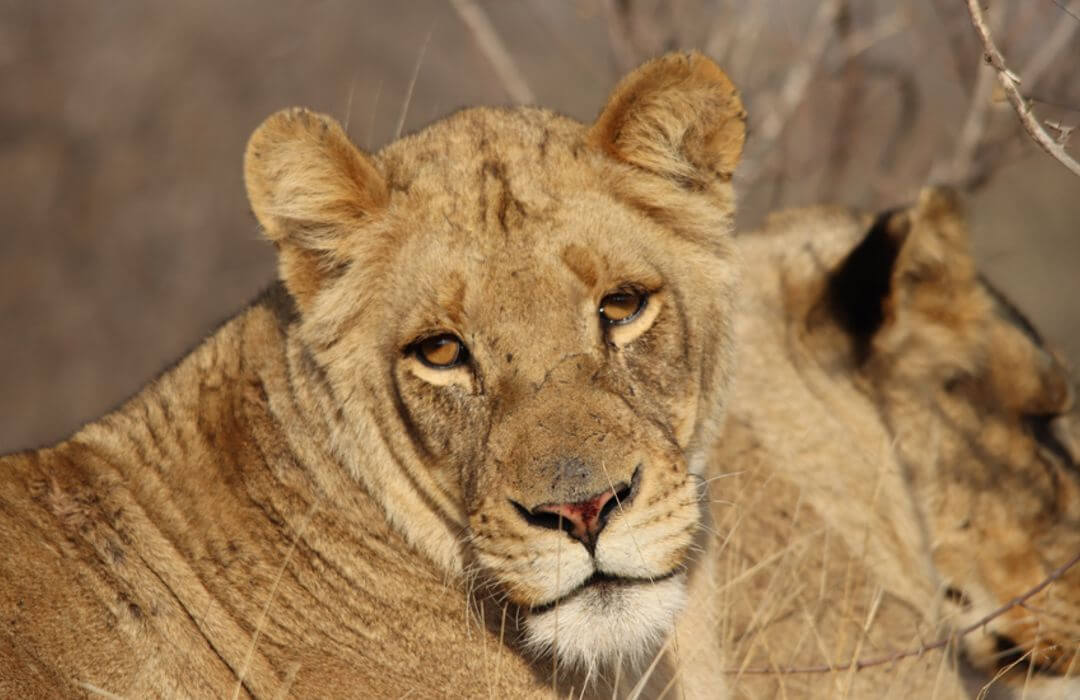Outlines of gemsbok silhouetted against a vast skyline. Red dunes where the wind blown sand transforms into ever changing patterns. Long dirt roads adjacent to the open dry river beds of the Nossob and Auob. Premium sightings of cheetah, lion and birds of prey. A desert paradise that you will fall in love with and keep returning to – that’s the Kgalagadi Transfrontier Park.
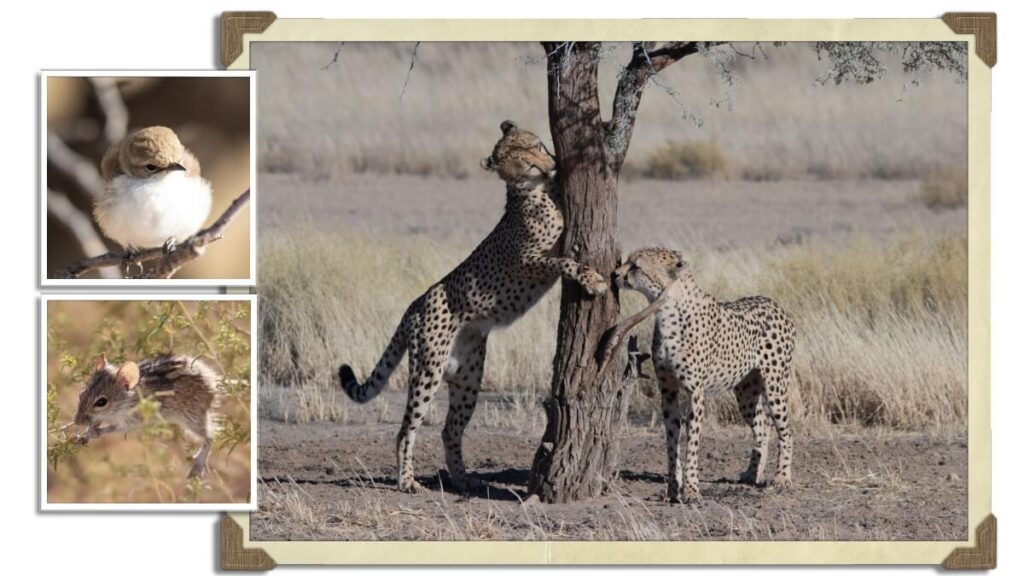
Before planning and embarking on a “first trip” to the beautiful Kgalagadi make sure you read a few blog articles but in the meantime keep reading:
Handy Tips
- The Kgalagadi falls under Sanparks and has a variety of accommodation options. Throughout the year many of these options are fully booked. As a result, you need to plan a trip to this area a year in advance.
- VERY important – lose at least 4 kgs before visiting the park. Indulging in large quantities of condensed milk, biltong, chips, red wine, chocolate, etc will have consequences.
- Purchase a good bottle of tequila to warm the cockles of the heart.
- Take along a bird book to help with identification. Alternatively, invest in the Roberts Bird Guide App but make sure your phone is charged. You may even want to consider going on a birding course to identify predator birds. They are seriously confusing to amateur birders.
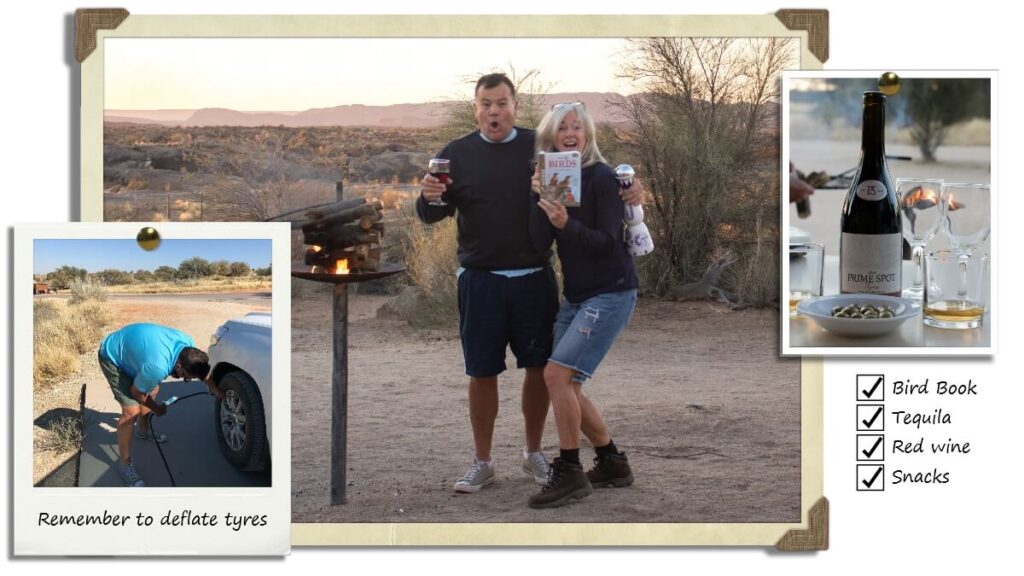
- Temperatures drop to -10 degrees, or lower, in the Kgalagadi in the winter months. Ensure you have a beanie to sleep with at night to avoid brain freeze. Furthermore, gloves help to avoid losing fingers whilst pouring a cup of coffee.
- Bring your own blanket – it comes in handy for the early morning drives.
- Many camps run on solar power so there is no chance of charging anything. If you having a bad hair day you unfortunately won’t be able to haul out the trusty hairdryer, never mind charge a camera battery. Consider taking along a power bank as back-up.
- Don’t always bank on using a credit card machine – it is remote in the Kgalagadi. In other words make sure you have cash as a back-up.
- Put water in the kettle the night before in case everything freezes, including your fingers and nose.
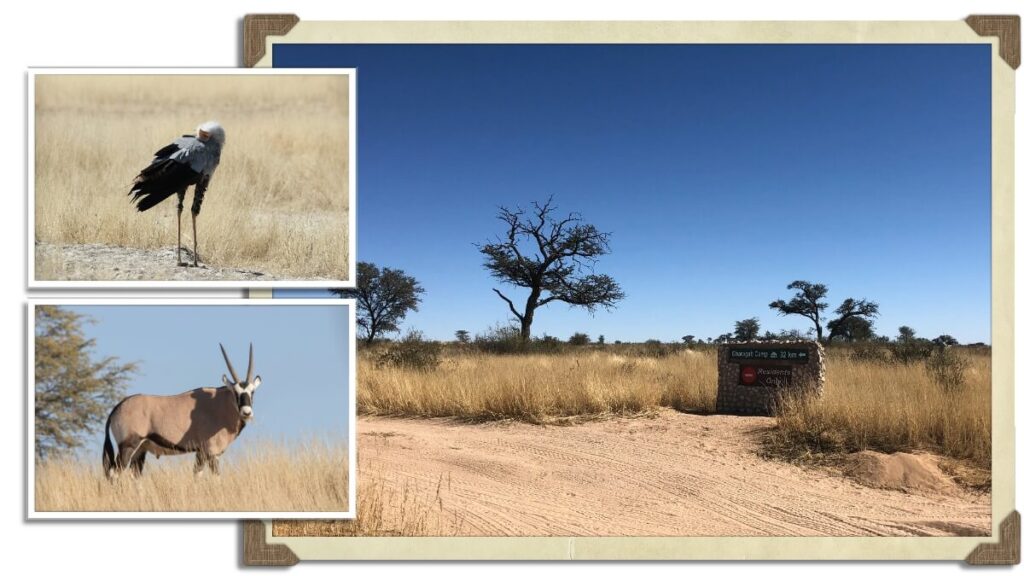
- Be nervous – the weavers are in force at the picnic sites. They give the monkeys in Kruger a run for their money.

- Always think ahead – petrol can be on short supply and the shops may not have had their delivery of stock. We were limited to 20 litres of petrol and one tin of condensed milk at Nossob – scary stuff!!
- Check there is sufficient gas in the tanks at your wilderness camp as you may have to man up for an early morning ice cold shower.
- Remember – where there is no river there are no animals. However, the scenery never fails to disappoint.
- Avoid visiting the park in August if you can. At the end of July we were starting to experience the winds that drive most things to the ground.
- The most sought after accommodation is without a doubt the Kgalagadi wilderness camps. We have stayed in 4 of them – the Kalahari Tented Camp, Grootkolk, Gharagab and Klein Krankie. It is well worth the effort of getting up at 4.00 in the morning and checking for new cancellations and availability online.
Khalahari Tented Camp
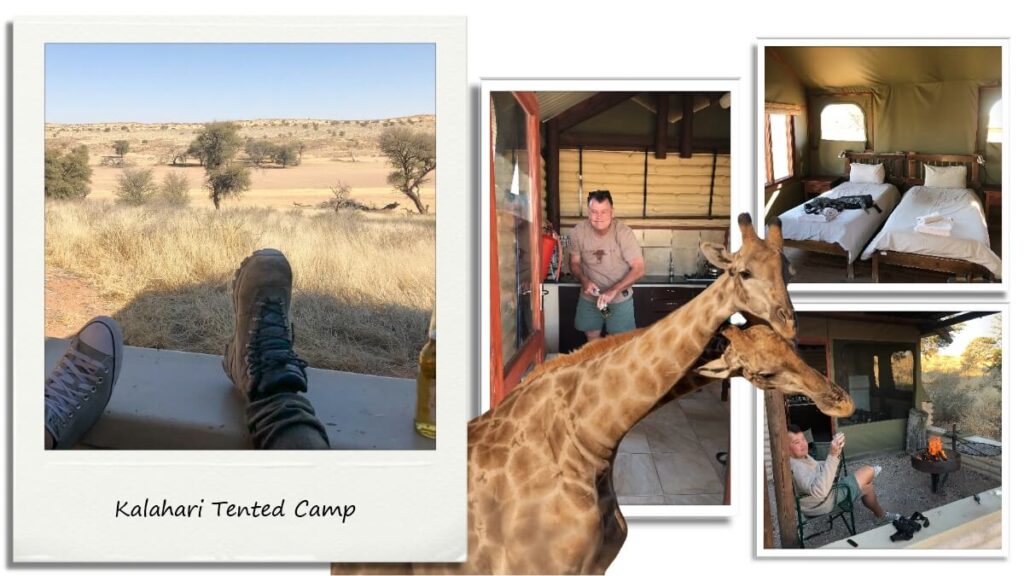
Our “desert tent” had a great view of the dry Auob River bed where wilderbeest and springbok grazed and Bat Eared Foxes foraged for food. The bedroom was roomie with two single beds, a wooden floor and tent walls. The shower was great and kitchen, which is separate to the bedroom, operates beautifully with a gas oven and fridge. Whilst getting ready for the inevitable evening braai we only had to deal with a desperate drongo intent on getting a bit of cheese.
Note the following:
Mata Mata has limited wifi otherwise there is no reception at the camp.
You will need to supply your own firewood and drinking water.
There is no fuel and no shop – the closest facilities are at Mata-Mata where the shop is limited in fresh produce. If you arrive there early make sure you order the brood – well worth it!!!
Grootvolk
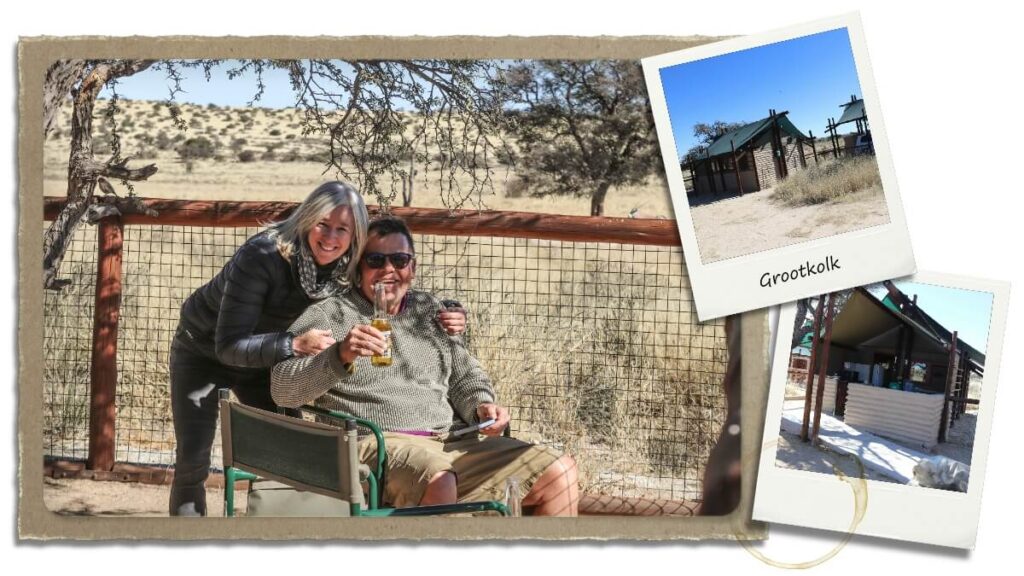
It is a long day cutting across from the Auob River to the Nossob River so it may be advisable to try and get a night at Nossob Rest Camp before heading north to Grootvolk – another two hour drive. Grootvolk is 20 km from Union’s End where South Africa, Botswana and Namibia meet. The road from Nossob to Grootvolk can be a bit sunken down from time to time making game viewing a little difficult. However, every time you come out of a dip beautiful landscapes and busy waterholes reward you.
Grootkolk can only be described as a piece of heaven on earth. The cottages are spotless with an abundance of birds flitting in the trees. The waterhole is right in front of the 4 cottages. Each chalet has 2 single beds, a ceiling fan and en-suite bathroom. The kitchen is on the veranda and there is gas for cooking and solar energy for lights.
Gharagab
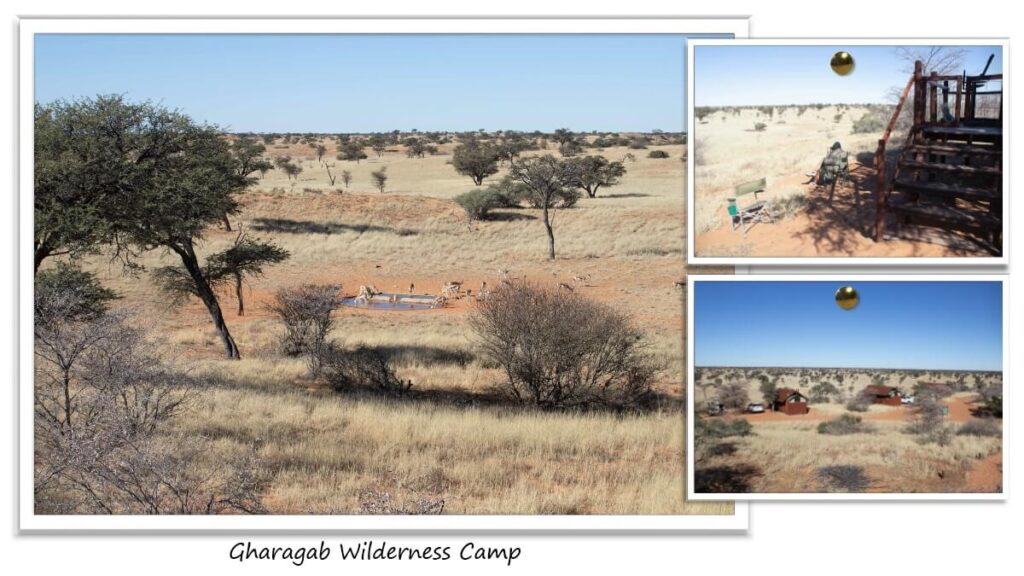
Gharagab overlooks a floodlit waterhole. The road in and out is devoid of much game but it’s a great one way circular trip where one can practice a couple of 4 x 4 skills. The view of the waterhole from each chalet is insane. Certainly, for us, one of the best. Each chalet has two single beds, a well equipped kitchen, en-suite shower and braai on the deck. The night temperatures drop well below zero and we had to put on every conceivable warm piece of clothing as the wind whistled through cracks and holes in the hut.
Kielie Kranke
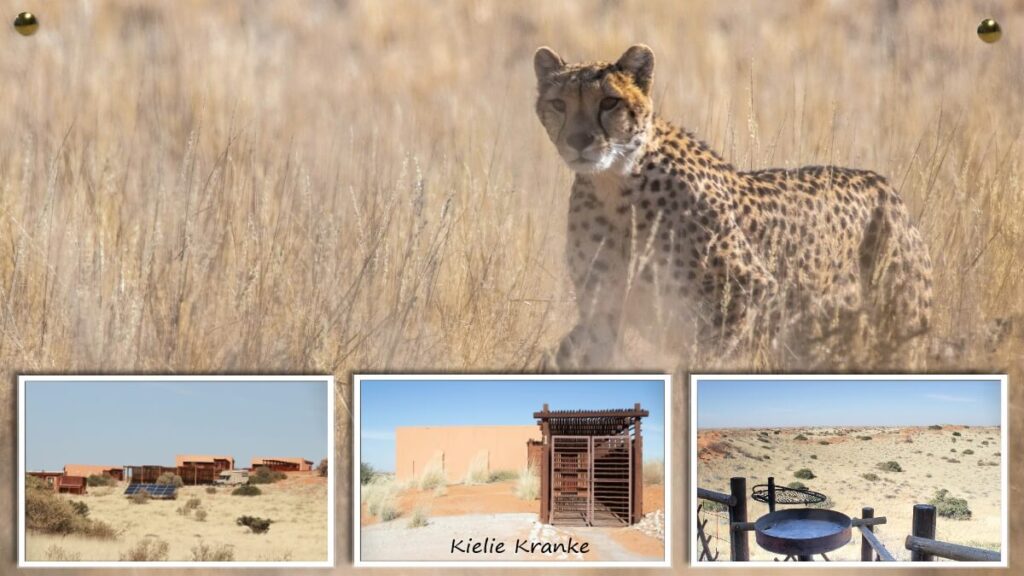
Spend one night at Kiele Krankie just for the view of the dunes. The camp is situated 50 km from Twee Rivieren on the Southern Dune Road. The closest shop and fuel supply is at Twee Rivieren. There are 5 units at Kieliekrankie each well equipped, functional, clean and in good condition. The deck area has a braai and a view of the small waterhole below it.
For more information on visiting the park for the first time you may want to read these blog articles:

